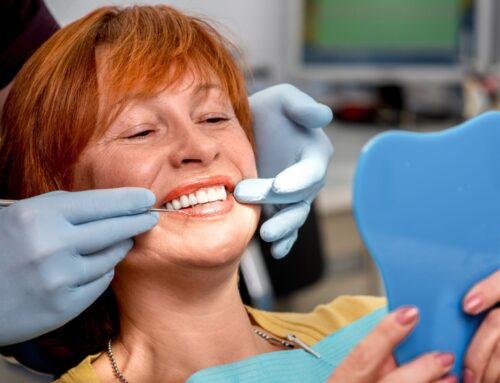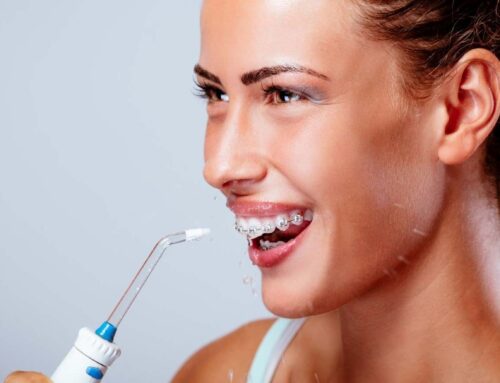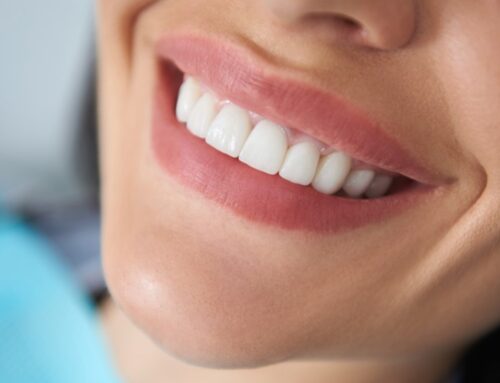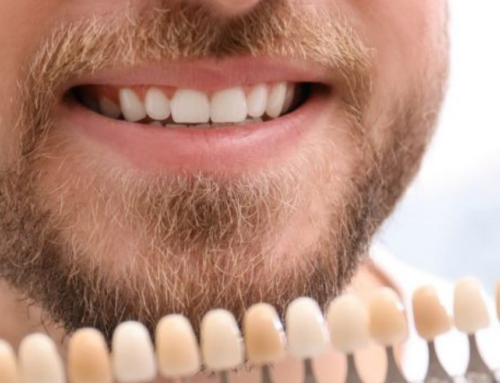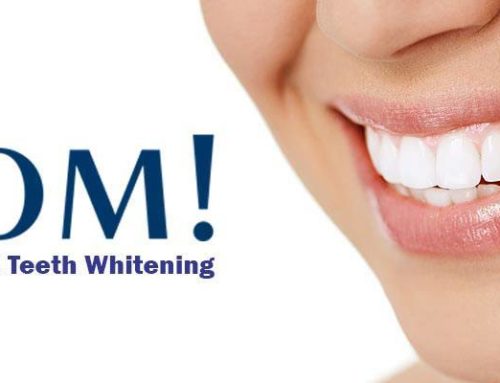Considering Dental Veneers?
Here’s what you need to know
If you’ve become frustrated with a smile that isn’t looking as great as it could, and you feel like you’ve tried everything to get the beautiful white teeth you want, it may be time to look at a more advanced cosmetic dental treatment. Dental veneers could be the ideal solution for you, but what exactly are they and how do they work?
The appearance of our teeth can affect our lives in many ways, some that are quite noticeable and others that are rather subtle. Having a smile that we are happy with can give us more self-confidence and improve our overall sense of well-being. On the other hand, teeth that are damaged, stained, or discolored can make us uncomfortable in social situations, damaging our self-confidence and detracting from our overall sense of happiness. While there are many different things we can do to maintain the appearance of our teeth and improve our smiles, sometimes we need a little professional help to really achieve the results we’re looking for. This is why your dentist may recommend a cosmetic dental treatment such as porcelain dental veneers.
Now, in order to really explain the benefits and advantages of a treatment such as dental veneers, it’s important to understand why the procedure may be necessary in the first place. There are many possible reasons why teeth may end up in a condition that the patient may not be happy with.
What Causes Teeth To Discolour Or Become Damaged?
In a large number of cases where dental veneers are recommended, the underlying cause is related to progressive decay or degradation of the teeth themselves. Lack of proper dental hygiene habits at home, such as infrequent brushing or neglecting to use floss, can gradually lead to noticeable discoloration of the tooth enamel. This often starts out with a yellowish tint on the surface of the teeth, progressing over time to an increasingly darker colour. Some teeth may start to develop a blotchy or mottled appearance, darker in some places and lighter in others. This discoloration is often due to a combination of staining effects produced by some types of foods, such as coffee and red wine, along with the build-up of plaque and tartar on the teeth.
If the color of the teeth is the only issue, this can perhaps be resolved with a professional tooth whitening treatment. However, the impacts of improper dental hygiene don’t stop at just surface staining. The build-up of bacteria in the form of plaque and tartar accelerates the process of tooth decay. The acidity created by these bacteria deposits slowly eats away at the hard surface enamel of the teeth, producing cavities, rough surface texture, grooves, and other physical irregularities in the teeth. This type of decay in the tooth structure remains visible and physically noticeable even if the discoloration is corrected.
In addition to staining and decay, teeth can also be damaged by accidental impacts, such as those common in contact sports like hockey and football, or perhaps from a collision, trip or fall. Impacts like this can result in chips or cracks in the teeth which, if left untreated, can lead to further dental health problems down the road. Teeth can also become physically damaged by excessive tooth grinding, which wears down the surfaces of the teeth and can produce sharp edges or weak spots that can be more likely to develop decay at a faster rate.
Now, the first thing that must happen in any of these kinds of situations is to identify exactly what the root cause of the problem is, and implement a treatment plan to correct it so that the decay and degradation does not continue. This may include a complete change in at-home dental care routines, developing better lifestyle habits such as quitting smoking, or investing in adequate mouth protection before participating in contact sports, just to name a few examples. However, once the cause of the problem has been pinpointed and addressed, the damaged and discolored teeth remain. If your dentist believes it is the best solution for your particular case, then a cosmetic dental treatment with dental veneers can begin.

What Are Dental Veneers, And How Do They Work?
Quite simply, dental veneers are very thin coverings that are affixed to the outer surfaces of the teeth in order to produce a uniform, consistent appearance in the smile of the patient. Most dental veneers are made from an ultra-hard and durable medical-grade porcelain material that offers a very natural appearance that is virtually indistinguishable from an authentic tooth.
Dental veneers are shaped and sized specifically for each patient, so the fit and finish of the tooth coverings are in perfect proportion to the rest of the mouth. This is done by first resurfacing the teeth in an amount approximately equal to the cross-section thickness of the veneers themselves. Once this is finished, the dentist will then continue by creating a replica model of the patient’s entire mouth, right down to the smallest detail. This model is then used as the reference to precisely craft the veneers for optimum fit and the best possible final appearance.
While the permanent veneers are being made, the dentist may affix temporary veneers to the teeth in order to preserve the surfaces of the teeth. After the veneers have been manufactured, the dentist will schedule the next appointment to remove the temporary covers and apply the permanent ones. During this final appointment, each tooth will be carefully prepared for the application of the veneer to ensure the strongest possible bond, and a powerful dental adhesive is used to permanently attach the dental veneers to the teeth.
After the procedure is completed, the patient is ready to enjoy their perfect new smile! It cannot be overstated how profound the transformation can be for some people. In some cases, patients who have never been fully satisfied with the appearance of their smiles can be moved to tears by how dramatic the change is. Patients feel a boost in self-confidence and overall satisfaction with their appearance, which can in turn lead to a long-term improvement in overall well-being and general mood. It’s amazing how such big benefits can be obtained from these kinds of cosmetic dental treatments!
How Much Do Porcelain Tooth Veneers Cost?
In comparison to many other types of dental procedures, porcelain dental veneers can be quite affordable, however the range can be rather broad depending on the specific scope of treatment for any particular individual. In general, porcelain veneers can range from $900 to $3,000, depending on the number of teeth that are going to have veneers applied to them, and how much preparation is necessary in order to get the patients’ teeth into the optimum condition for the procedure.
It is worth noting that porcelain veneers, like many other cosmetic dental treatments, are not always covered by insurance companies and corporate benefits plans in Canada. However, this does not mean that there are no financial assistance options available to help handle the costs. In fact, Georgian Dental is pleased to offer in-house dental financing services to help make it easy for patients to obtain the treatments they want, while making the total costs much easier to manage.
Oral Care Tips For Patients With Dental Veneers
Patients who receive dental veneers are usually pretty surprised by how low-maintenance they are. All the same dental care practices apply to people with veneers, with a few small variations. Brushing and flossing are still of critical importance of course, however you’re going to want to avoid harsh abrasive toothpastes and stick to a soft-bristled brush. For specific recommendations, consult your dentist and they’ll give you the best options to choose from. Using an antibacterial oral rinse on a regular basis can also be very beneficial in staving off the harmful germs that can lead to tooth decay.
Habitual tooth-grinders are definitely going to want to take extra steps to avoid damaging their veneers, which will likely require wearing a special nighttime mouthguard while they sleep. On the plus side, this will also help to provide relief from other symptoms of tooth grinding such as headaches and sore jaw muscles. Avoiding chewing on hard objects is going to be important, too. This includes things like ice, jawbreaker candies, fingernails, and pens or pencils.
Maintaining the recommended schedule for professional dental checkups and hygiene treatments is also essential for your overall dental health, as well as to help keep your veneers in tip-top shape. This means booking future appointments at the end of each visit, and keeping an open dialogue with your dentist about any concerns you may have about the state of your mouth and the care of your teeth.
Find Out If Dental Veneers Are Right For You – Call Georgian Dental Today!
If you are excited about the potential difference that porcelain dental veneers can make to the appearance of your smile, there’s no better time to call Georgian Dental than right now. Our friendly team of dental health professionals will gladly arrange your initial consultation to start the process and ensure that all of your questions are answered in full. Your new smile is waiting!
Appointment Request
If you’re interested in any of our procedures, and would like to meet with one of our dentists to discuss options, costs and get additional information, complete this short form and we’ll give you a call to arrange for a no-obligation appointment at our Barrie clinic.

